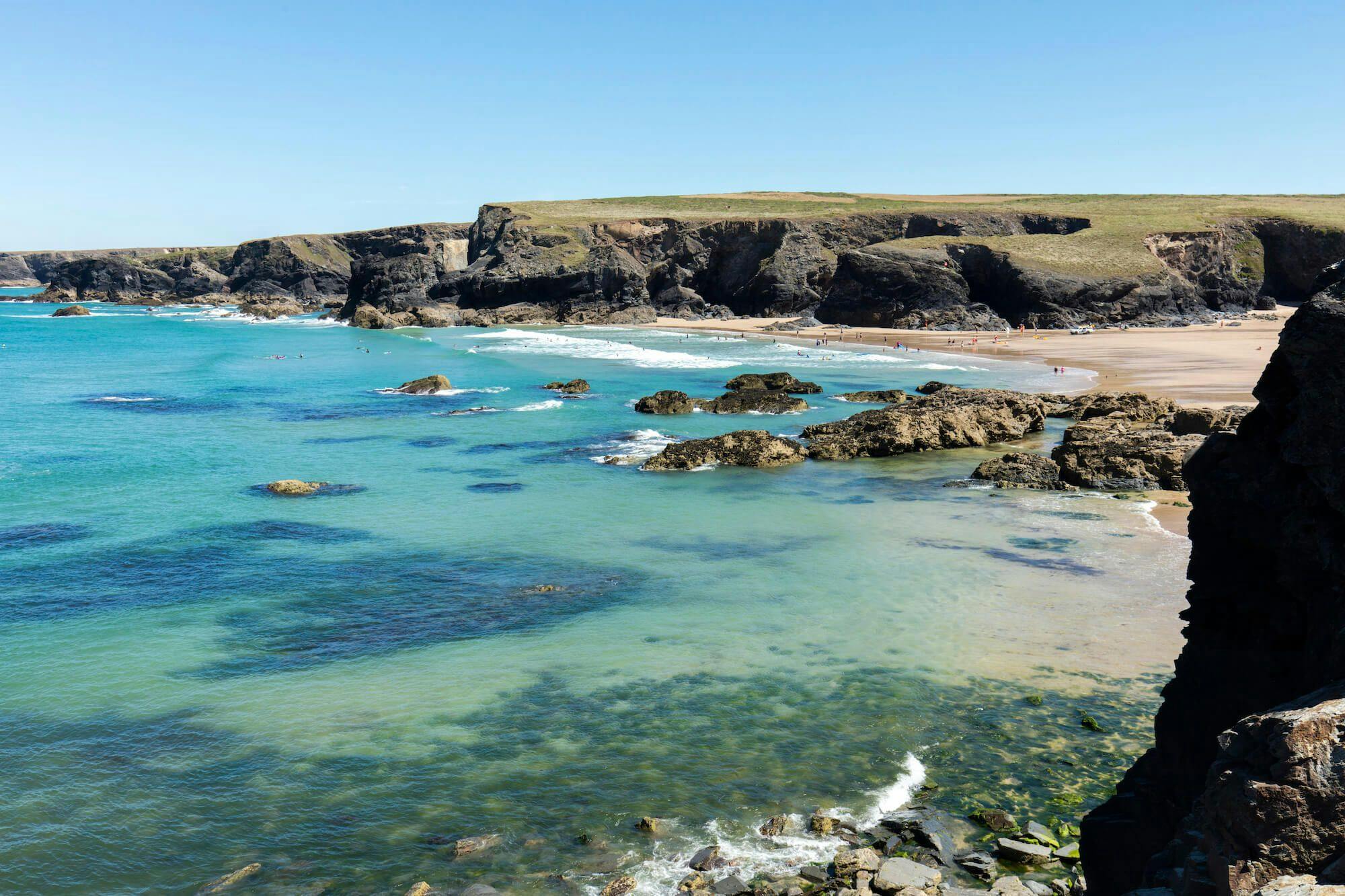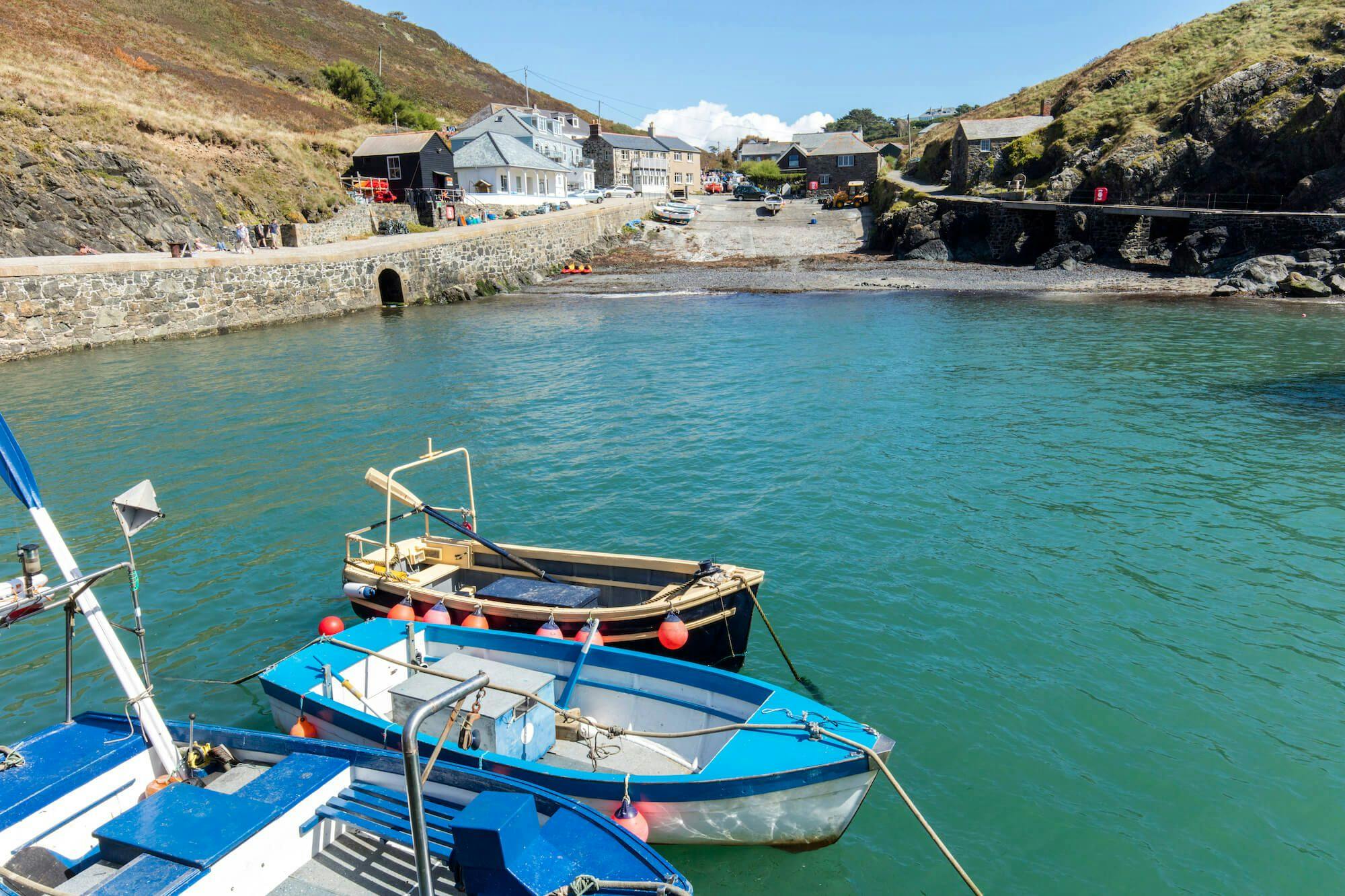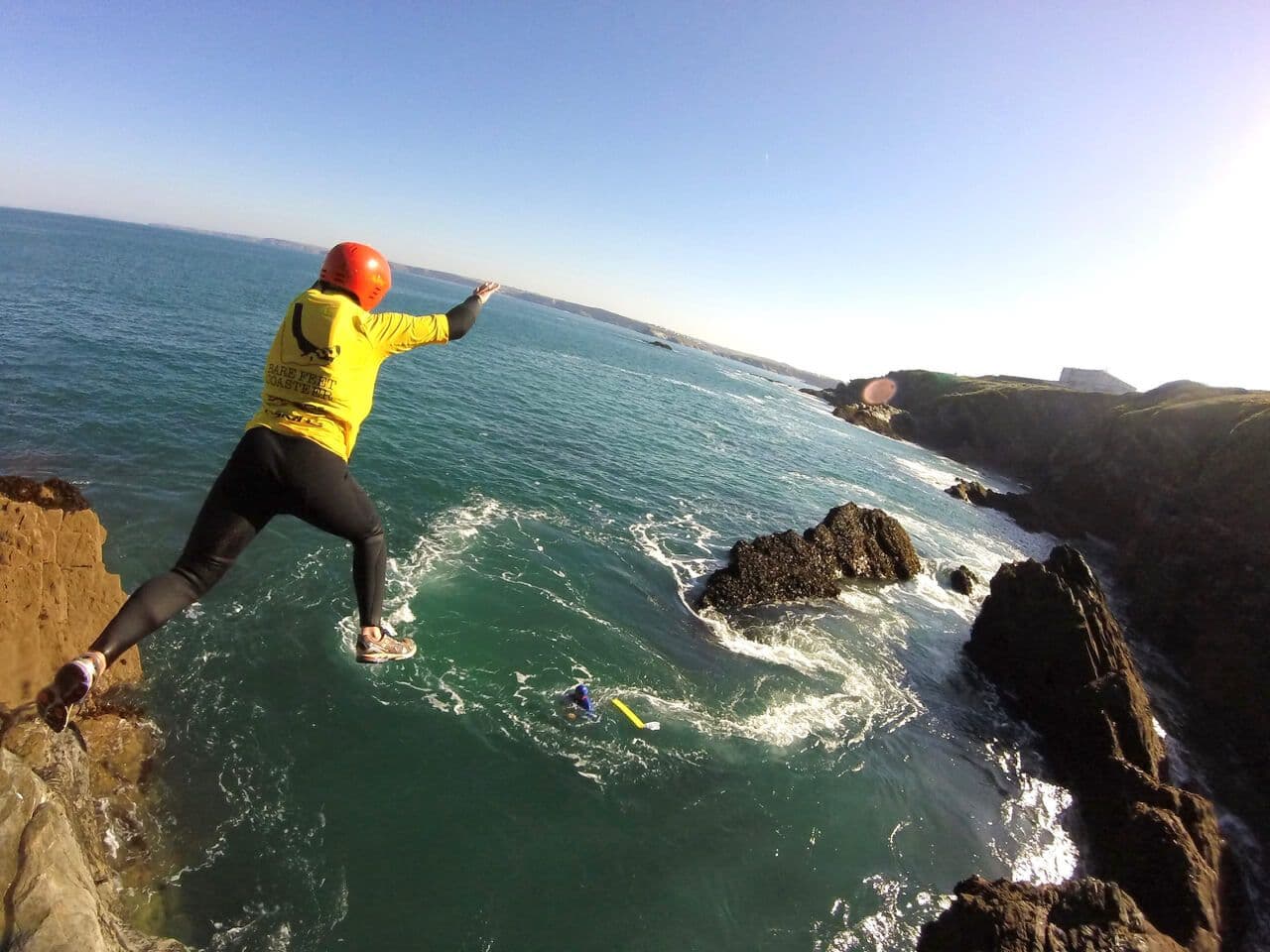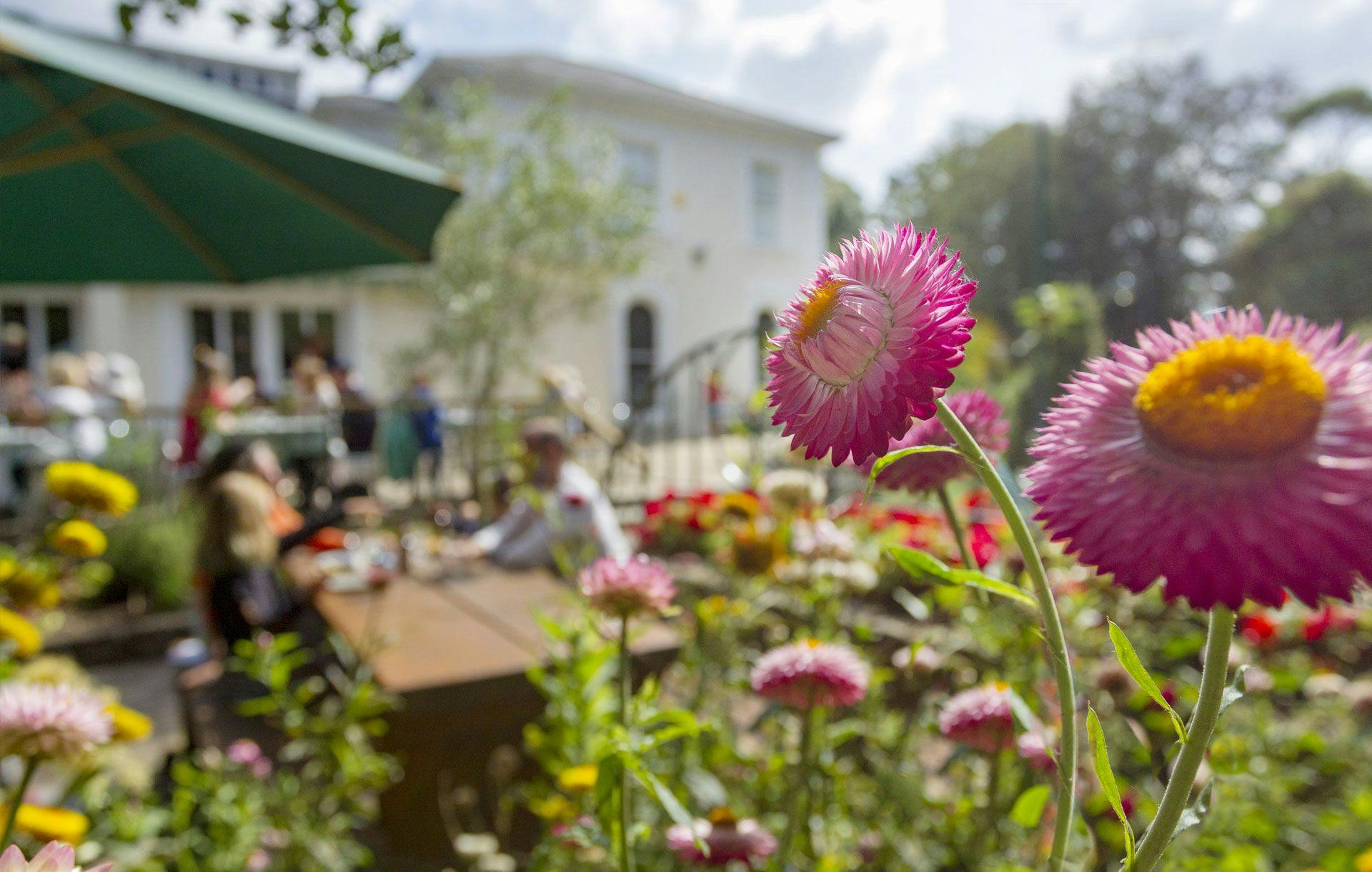Falmouth
AberfalThe spirit of the sea
Falmouth has been shaped and influenced by its strong connection to the sea. Combining a fascinating maritime heritage and modern creativity, Falmouth is building a name for itself as one of the South West’s leading cultural and festival destinations.
Welcome to Falmouth
Steeped in rich maritime history, Falmouth stands as one of Cornwall’s most popular destinations. Originally developed around its deep natural harbour, which established it as a key port, the town has evolved into a vibrant creative hub and is home to one of the UK’s top arts universities.
Bordered by the stunning Fal River National Landscape (formerly the Area of Outstanding Natural Beauty) on one side, and the beloved beaches of Castle, Gyllyngvase and Swanpool on the other, Falmouth offers not only a rich cultural scene but also breathtaking natural surroundings. The area’s mild climate supports beautiful subtropical gardens, perfect for exploring year-round.
Renowned as a sailing town, Falmouth hosts a variety of regattas and festivals throughout the year. It is also a foodie’s paradise, with numerous food festivals celebrating the region’s excellent local produce and top-quality dining. Plus, an excellent selection of pubs and free-houses offering top-quality brews and unbeatable scenery.
Did you know?
The beloved and now world-renowned children’s novel, The Wind in the Willows, has its origins in Falmouth. In fact, the first two letters that would later form the foundation of the book were written at The Greenbank Hotel, where author Kenneth Grahame stayed as a guest in 1907.
Things to do in Falmouth
Whether you're seeking a beach getaway, indulging in quality cuisine, exploring independent shops, or delving into local history, Falmouth has something to offer everyone.
Unlike many Cornish towns, Falmouth thrives year-round with a lively atmosphere, making it a destination for all seasons.
Falmouth’s beaches are known for their calm waters, ideal for activities like snorkelling, swimming, sailing, kayaking, and coasteering. Family-friendly and well-equipped, they offer great spots for rockpooling and building sandcastles – or you can simply relax on the soft sands and take in the stunning coastal views.
Overlooking the bay is Pendennis Castle, one of King Henry VIII’s Tudor forts. Built in 1542 to defend the entrance to Carrick Roads, it now features exhibitions on its role throughout history, including during World War II, and offers breathtaking cliff-top views over the ocean.
The National Maritime Museum Cornwall is a must-visit for families and maritime history enthusiasts. It showcases famous vessels, interactive exhibits, model boat racing, and even an underwater viewing window into the harbour.
From the museum, stroll along Falmouth's bustling high street, where you'll find unique indie shops, galleries, and craft stores. When you reach The Moor, stop by the award-winning Falmouth Art Gallery (free admission) to enjoy rotating exhibitions.
For those who love exploring on foot, Falmouth has a variety of scenic walking routes. Join a guided history tour, wander along the riverbanks of Carrick Roads, or follow the South West Coast Path for stunning waterfront scenery.
Falmouth also hosts a vibrant events calendar, including Falmouth Regatta Week, Falmouth Food Festival, and the Falmouth Oyster Festival. Throughout the year, venues such as Princess Pavilion, The Cornish Bank, and The Poly, along with the local council, offer a range of musical performances and theatre shows.
Did you know?
From 1688 to 1850, Falmouth was made a Royal Mail packet station. The packet (mail) ships filled the harbour for over 150 years, delivering mail to and from the rest of the British Empire. Falmouth is also the third deepest natural harbour in the world and the deepest natural harbour in the whole of Western Europe.
Further afield
Just six miles from Falmouth lies the picturesque Helford River, one of the few places in the UK where ancient oak forests meet the water's edge. This serene area is ideal for kayaking, walking, and exploring, making it a must-visit destination.
Nearby, you'll find Trebah Garden, a stunning example of subtropical landscaping, perfect for a peaceful stroll. Further up the river, the Cornish Seal Sanctuary offers a chance to learn about rescued seals and other marine life.
For a charming day trip, hop on the ferry from Falmouth's Prince of Wales Pier to St Mawes, a tranquil coastal village on the opposite side of the river. Alternatively, take the ferry to Flushing, a peaceful village offering scenic walking routes along the water.
Getting Around
Falmouth is easily accessible by local rail and bus services. Regular buses connect Falmouth to nearby towns, while trains run twice an hour to Truro, where you can transfer to the mainline for direct routes to London. For train schedules, visit Great Western Railway, and check Transport for Cornwall for discounts on bus fares.
From late availability to money-off discounts, we have an offer to suit everyone.
Whether you're in need of a last-minute getaway or whether you're simply looking for a saving for your next adventure, we have an offer for you. From last-minute trips to early bird discounts, a quick weekend away to savvy savings on your family break; discover more of Cornwall for less.
Accommodation
Things to do in Falmouth
Sorry, no results were found that match your filters.
Plan your trip
Everything you need to plan your perfect trip to Falmouth
The M4, M5 and M6 motorways have made travel to Cornwall simple and straightforward, while within Cornwall itself, the A30 and A38 continue to improve with fast dual carriageways. Follow the M5 to Exeter, and join the A30 to Truro, then follow the signs to Falmouth via the A39.
Falmouth has long stay car parks located at either end of the town, and coach parking at Gyllyngvase Beach.
National Express serves Falmouth from destinations throughout the UK. Connecting services to Cornwall are available from Bristol, Birmingham and London. The coach drop off point is to the centre of Falmouth, just above the Moor.
Great Western Railways operate high speed services from London Paddington, South Wales and the Cotswolds to Cornwall, including sleeper services from London Paddington. Cross Country Trains (Arriva Trains) operate services into Cornwall from the Midlands, the North and Scotland. Falmouth is lcoated on a branch line from Truro and has three platforms which serve the town, Penmere, Falmouth Town & Falmouth Docks. Trains run regularly and connect with mainline trains at Truro.
FAQs
View allDogs are allowed on Castle Beach, Gyllyngnvase Beach, Swanpool Beach & Meanporth all year except from 1st July - 31st August when then are not allowed between 10am - 6pm.
Travel to Cornwall by car
It takes less than five hours to get from London or Birmingham to the heart of Cornwall by car.
Drive along the M4 motorway from London, or M6 from Manchester, and then the M5 to Exeter and finally either the A30, that is mostly dual carriageway, or the A38 passing Plymouth and Saltash into South East Cornwall.
Alternatively if you enter Cornwall from North Devon, there is the scenic A39 Atlantic Highway running through Bude, which you can join from Junction 27 on the M5.
Due to the high volume of traffic on Cornwall's roads during the summer months the main routes can become congested especially at weekends. Travelling overnight or outside peak rush hours is recommended to avoid long delays.
- To plan your journey use the AA Route Planner for a tailor made travel plan with timings and mileage
- For information on possible delays or roadwork's throughout the UK or in Cornwall visit Traffic Watch
- Travelling to Cornwall with a caravan? Check out this Caravan Towing guide
Travel to Cornwall by coach and bus
National Express operate a full service into Cornwall as far as Penzance, Megabuss also go to a few towns including Newquay and Falmouth.
Coach travel times from London or Birmingham to the city of Truro are around 7-8 hours
Many tour operators offer coach holidays to Cornwall, contact your local travel agent for details.
For information on public transport, including local bus timetables, once you are in Cornwall [click here].(https://www.firstbus.co.uk/cornwall/plan-journey/timetables).
If you are bringing a coach to Cornwall, did you know Cornwall Council now offers a weekly coach rover ticket. This is available for all car parks where coaches are permitted and costs £16.60 for 24 hours or £55.35 for 7 days and £38.75 for 4 days.

Your weekly dose of Cornish cheer!
When you can’t be in your favourite place all the time, catch up on the latest stories, upcoming events, holiday ideas, and offers with a newsletter straight to your inbox. Terms and Conditions / GDPR compliance: by providing personally identifiable information Visit Cornwall will use it to provide you with ongoing information about their products and services. No one from Visit Cornwall will rent, sell or lease this personally identifiable information to other companies or individuals.
Stay connected
Find us on socials and stay connected with the Cornwall you love.
We use cookies to personalise content and ads and to analyse our traffic. You consent to our cookies if you continue to use our website. (Privacy Policy)


















